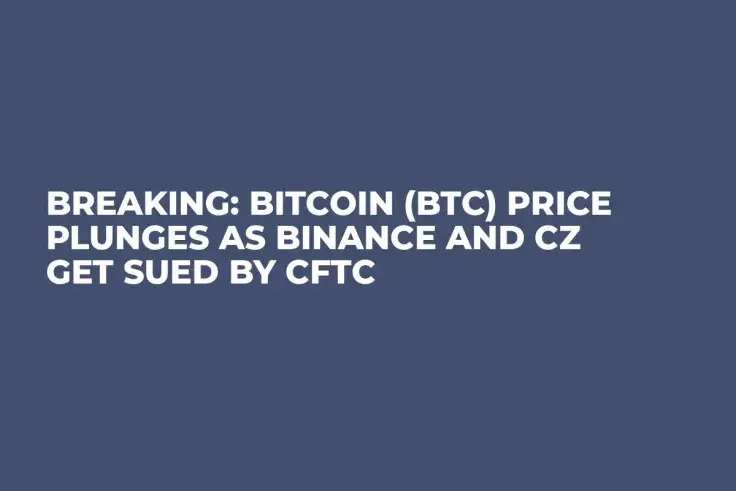
Binance, the world's largest cryptocurrency exchange, and its CEO Changpeng Zhao, are facing a lawsuit filed by the Commodity Futures Trading Commission (CFTC) over alleged regulatory violations.
The lawsuit was filed in federal court in Chicago on Monday, accusing Binance and Zhao of breaking trading and derivatives rules.
It claims that Binance has solicited and accepted orders from U.S. customers involving spot and derivative transactions since July 2019 despite not being registered with the CFTC.
The crypto giant has intentionally obscured the location of its executive offices, with Zhao stating that Binance's headquarters is wherever he is at any given time.
According to the lawsuit, Binance and its officers have actively facilitated violations of U.S. law, instructing U.S. customers to use VPNs to evade compliance controls and allowing customers who had not submitted proof of identity and location to continue trading on the platform. They have also directed VIP customers with assets in the U.S. to open Binance accounts under shell companies to evade compliance controls.
The CFTC aims to stop Binance's illegal activities and force them to follow the law while also seeking financial penalties and additional remedies such as bans on trading and registration and repayment of ill-gotten gains.
The news of the lawsuit has sent shockwaves through the cryptocurrency market, with the price of Bitcoin plunging to $26,766, a 4.4% drop for the day. The flagship cryptocurrency has now reached a 10-day low.
Binance's native cryptocurrency, Binance Coin (BNB), has also been affected, with its value dropping by 1.6%.

 Vladislav Sopov
Vladislav Sopov Dan Burgin
Dan Burgin